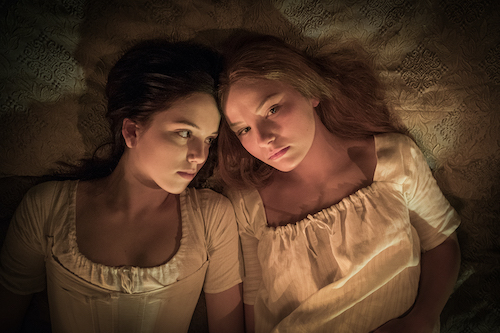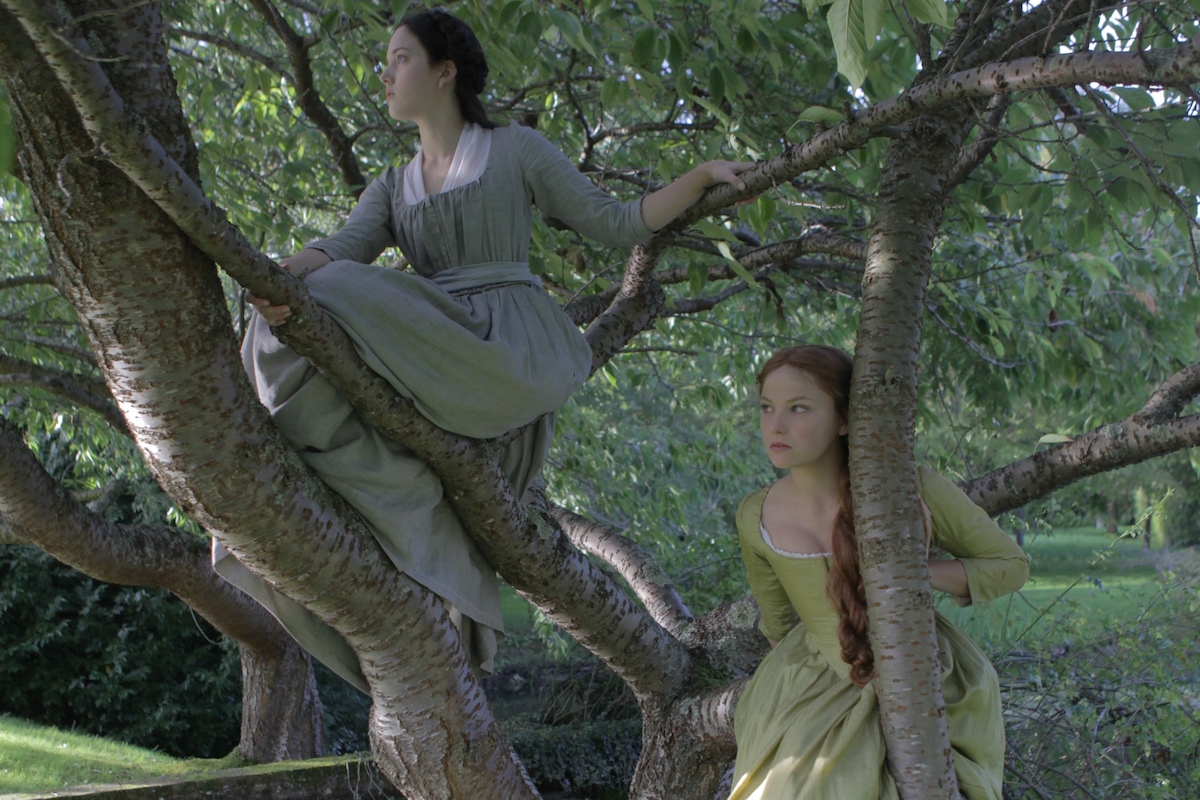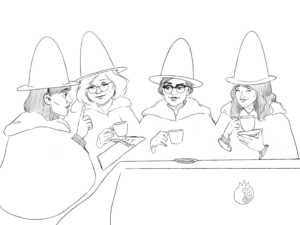With a weird, unsettling summer of broken promises ending, I, for one, am looking forward to embracing the spooky season with everything I have. The season for celebrating horror movies, all things goth, and ingesting ungodly amounts of candy is close at hand, and what better way to anticipate autumn and winter than with a sapphic gothic romance? Carmilla (2019), promises a Euro-goth period piece full of gay longing and impossible yearning. It mostly delivers on these concepts.
The film centers Lara, a teenage girl growing up with her doctor father and Miss Fontaine (a guest? companion to Lara’s father? the movie never clarifies this really so take your pick) in the 1700s English countryside. She’s the only teenager in the house, and is looking forward to her friend visiting soon. What she gets instead, after her friend is too ill to visit, is a mysterious girl her father takes in after she endures a carriage crash with no memory of her previous life. The arrival of this new girl, who later settles on the name Carmilla, proves to be a life-changing event for everyone in the house, rattling Lara’s ideas about identity, religion, sexuality, and belonging.

However, as heady as the promise of this summary is, there seems to be nothing but vibes here—not necessarily a clear or concrete vision. We’re teased with the concept of a moody, atmospheric queer story, and while there’s heaps of atmosphere, there’s also an icy cruelty at the very end.
Let me explain—at first glance, Carmilla promises everything you’d want from a gothic English period piece. There are sick medical illustrations that Lara seems fascinated by, but is forbidden to read; a sense of religious oppression/guilt (particularly from Miss Fontaine, who is always clutching a rosary or forcing Lara to pray next to her); and body horror dreams galore. The two girls even become “blood sisters,” slicing each others’ hands, then tenderly painting their own lips with the blood, sealing this bond with a kiss. And yet…AND YET, the movie seemingly falls into a trap that I did not expect: denying the queer main characters their happy ending.
Things reach a fever pitch at the manor, and soon enough Carmilla and Lara are on the run. It looks like, for one, brief, shining moment that we will get the sapphic, gothic romance we deserve. And then, the girls are caught by Miss Fontaine and Lara’s dad. In a matter of moments, Carmilla is being slaughtered with an axe in front of Lara.
I understand that gothic romances usually have bleak endings (see Crimson Peak, 2015), but would it be too much to ask for an upending of these tropes every once in a while? While Carmilla was adapted from a novella published in 1872, a time not known for its queer happy endings in literature, the filmmakers squandered a real chance at a meaningful retelling. Why take the time and effort to update this story if you’re not going to have anything new to say? The movie comes right up to the possibility of saying something meaningful about queer love, but rejects the chance and hits a wall. Imagery and promises can only do so much!

In addition to all of this lost potential, there are plot points that go nowhere (hints of Miss Fontaine potentially being queer herself are left untouched), and a lot of beautifully haunting imagery that suggests embracing queerness can be a destructive but liberating act is wasted away with Carmilla’s death. Because even as Carmilla is destroyed, there is no clear triumphant or freeing change in Lara, save for the hint that Carmilla might be possessing her in the last shot of the film.
If Carmilla offered some kind of deliverance in the face of this queer pain, that would be one thing. Instead, we get a rotted bouquet of a film—something that looks beautifully mottled, but is really just detritus.
This is all to say that if you’re looking for a queer gothic romance with substance, Carmilla (2019) might not be the movie for you. It’s a nice watch for atmosphere and spooky visuals, but its promises of liberation through impossible, queer love ring hollow in the end.
All images in this article via Carmilla (2019).




